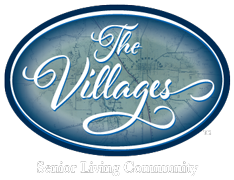Recognizing changes in a loved one’s behavior or abilities can be challenging, but certain such changes may signal a need for specialized care. Memory care offers a secure and supportive environment for seniors coping with memory-related conditions like Alzheimer’s or dementia. Key signs to watch for include:
- Behavioral changes
- Safety concerns
- Emotional & social changes
- Health & medication challenges
- Caregiver burnout
Being aware of these indicators can help you determine when it’s time to consider memory care as an option for your loved one.
What Is Memory Care?
Memory care refers to specialized support designed to meet the needs of people living with memory-related conditions such as Alzheimer’s and other forms of dementia.
With structured routines, personalized assistance, and a safe, engaging environment, memory care can bring security and comfort to seniors while easing caregiving responsibilities for families.
Behavioral Changes to Watch For
Increased Forgetfulness or Confusion
Everyone forgets things occasionally, but frequent or severe memory gaps can indicate a more serious issue. Signs to watch for include:
- Forgetting appointments
- Losing track of time
- Repeatedly misplacing important items like glasses, keys, or wallets
- Confusion about familiar places or people
Difficulty Handling Daily Tasks
Daily tasks like cooking, cleaning, or paying bills should remain familiar for most adults. If your loved one is leaving meals unfinished, forgetting steps in recipes, or missing due dates for utility payments, this could be a sign that they need additional support.
Safety Concerns at Home
Safety issues such as leaving stoves unattended, failing to lock doors, or accidentally mixing up medications pose significant risks to your loved one’s health. Memory changes can make it difficult for your loved one to maintain the safe habits that many of us take for granted.
Wandering or Getting Lost
Both wandering and getting lost, even in familiar places, are common in people living with dementia. This behavior is not only stressful for families, but can also put their loved one in harm’s way.
Frequent Falls or Accidents
Balance issues or unexplained bruises may indicate lapses in judgment or coordination caused by memory-related conditions. However, frequent accidents can also point to other underlying risks, such as changes in motor skills or forgetfulness about safety practices.
Emotional & Social Changes
Memory conditions can also affect emotions and social habits. Emotional and behavioral changes are just as important to assess when considering your loved one’s need for care.
Noticeable Mood Swings
Have you noticed sudden or frequent mood changes in your loved one? Irritability, frustration, or even unusual emotional outbursts may indicate struggles related to memory loss or cognitive impairment. These changes can sometimes stem from confusion and the challenges of processing information.
Withdrawal from Family & Friends
Social withdrawal is another common sign that a person may need memory care. A loved one who used to enjoy regular family get-togethers or outings with friends may now avoid these situations altogether. Often, this comes about when a person attempts to conceal memory issues or as a symptom of anxiety related to dementia.
Health & Medication Challenges

Pay attention to whether your loved one is staying on top of medications and maintaining their personal care needs.
Missed Medications or Appointments
Missing doses of medication or skipping doctor appointments can negatively affect health, especially for people managing other medical conditions. If these behaviors develop into a pattern despite reminders, memory-related challenges may be a contributing factor.
Changes in Personal Hygiene
Neglected hygiene is often one of the clearer indicators that your loved one may need more assistance. Watch for unwashed clothing, infrequent bathing, or an overall lack of grooming that wasn’t previously an issue.
Caregiver Burnout
Caring for a loved one can be an incredibly rewarding experience, but sometimes the stress becomes overwhelming. Caregiver burnout can sneak up on even the most dedicated family members. You deserve to take care of yourself, too!
Feeling Overwhelmed or Unable to Meet Needs
Struggling to balance your responsibilities with caregiving often indicates it’s time to seek help. That’s why, if providing care has become emotionally or physically exhausting, you should consider looking into memory care.
Stress Impacting Your Well-Being
Physical and emotional signs of stress, like fatigue, irritability, or constant worry, are important to recognize. Seeking support benefits you and ensures that your loved one receives the best care possible.
How Memory Care Can Help
Specialized memory care is designed to create a safe and supportive environment where people living with dementia can thrive. Here’s what makes it valuable not only for those receiving care but for the families who love them.
Personalized Support & Structured Routines
Memory care prioritizes individualized attention, ensuring that your loved one receives consistent support for their needs and abilities. They’ll experience moments of familiarity and comfort with structured routines every day.
A Safe & Engaging Environment
From thoughtfully designed living spaces to activities that stimulate the mind, memory care creates an environment that promotes physical safety and emotional health. Caregivers are specially trained to address your loved one’s unique challenges with unending patience and kindness.
Learn More About Memory Care
Facing memory challenges with a loved one can be overwhelming, but you don’t have to go through the experience alone. Recognizing the signs that memory care will help your loved one and finding the right support can help your loved one live a life filled with safety, comfort, and joyful moments.
At The Villages of Murfreesboro, we’re here to provide the compassion, community, and expert care your loved one deserves. Let us help you feel confident knowing they’re in the best hands.
Contact us to learn how we can make a difference in you and your loved one’s life.




